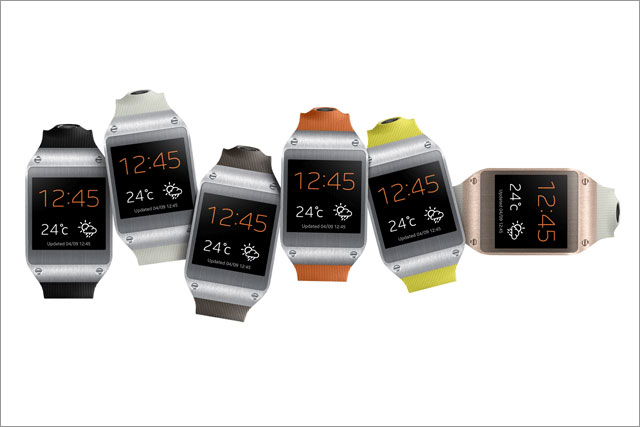A highly intelligent computer worn on the wrist was once a childhood sci-fi fantasy of the 1980s. However, now we’ve seemingly arrived at the future with the launch of the Samsung Galaxy Gear smartwatch, we have to ask ourselves what function such a device could possibly play alongside the plethora of other devices which have become the norm.
Using a watch as a telephone, music player (with wired headphones), television, messaging device requiring a keyboard, internet browser or a camera, all just seem quite impractical and inefficient in comparison to the handheld format we have ended up with. So do we really need something on our wrists? And if so, what would it do and what would it mean for the marketing industry?
Game changer
While we might initially reject the idea of a smartwatch as superfluous, there is something so immediate and ready-to-hand about a wristwatch that makes me think it must be a game changer for something – but what? Samsung’s launch details suggest that it will primarily be used for keeping a check on notifications happening on another Samsung device, but I can’t help feeling that receiving a notification telling you to get your phone out of your pocket seems a bit pointless when the phone can just beep or vibrate itself.
I think the future version of this is something which will keep us in touch with the contextual situations we find ourselves in throughout our daily lives.
No, I think this is just a step in a conscious direction for Samsung, towards a place where a device like this has meaning in end-to-end functionality only in the watch itself. Telling the time is something you do because it helps you keep up with the arrangements of your life.
I think the future version of this is something which will keep us in touch with the contextual situations we find ourselves in throughout our daily lives, in a way which goes above and beyond what we intend in the first place.
I walk into a pub to meet some friends what can technology tell me about the place that I have just entered? What can it help me with or tell me to do which I wouldn’t have otherwise thought about? I walk into a large shopping mall – I have no idea that my favourite brand of jeans is on sale in one of the stores, and I only went in for a coat so it wouldn’t have crossed my mind to check.
I am checking my phone for emails all day anyway, so doing this via a watch offers only a tiny reduction in physical energy, but alerting me to relevant things I would otherwise never have checked for is a very different concept altogether.
Content and data
The Google Now service is, I believe, the kind of content and data which we will hopefully start to see represented on smart watches – incidental but very useful information and guides which are highly personal and relevant to my surroundings and context. For me, the actual race to market with the hardware is irrelevant in comparison to the development of such content and functionality.
All of this, of course, throws up some very interesting deeper discussions around marketing. Some time ago, we worked with O2 to develop the Priority Moments proposition, which has proved a very successful way of putting consumers in touch with locally relevant offers, but the challenge has always been getting people to remember to check the service when they go out.
This is ultimately a restriction driven by the fact that, for the majority of the time, the phone stays in the pocket. Being able to serve locally relevant offers to users (providing that is what they want) through a watch would change that completely.
Again, for this to work well, it relies on some kind of vision for the software and services that the watch is aiming for. It needs to be ultra-simple and focused on just delivering a few things very well, not just being a window into everything which the mobile already does. I have a feeling that the launch of this device could well be the start of some interesting future innovations from marketers.


